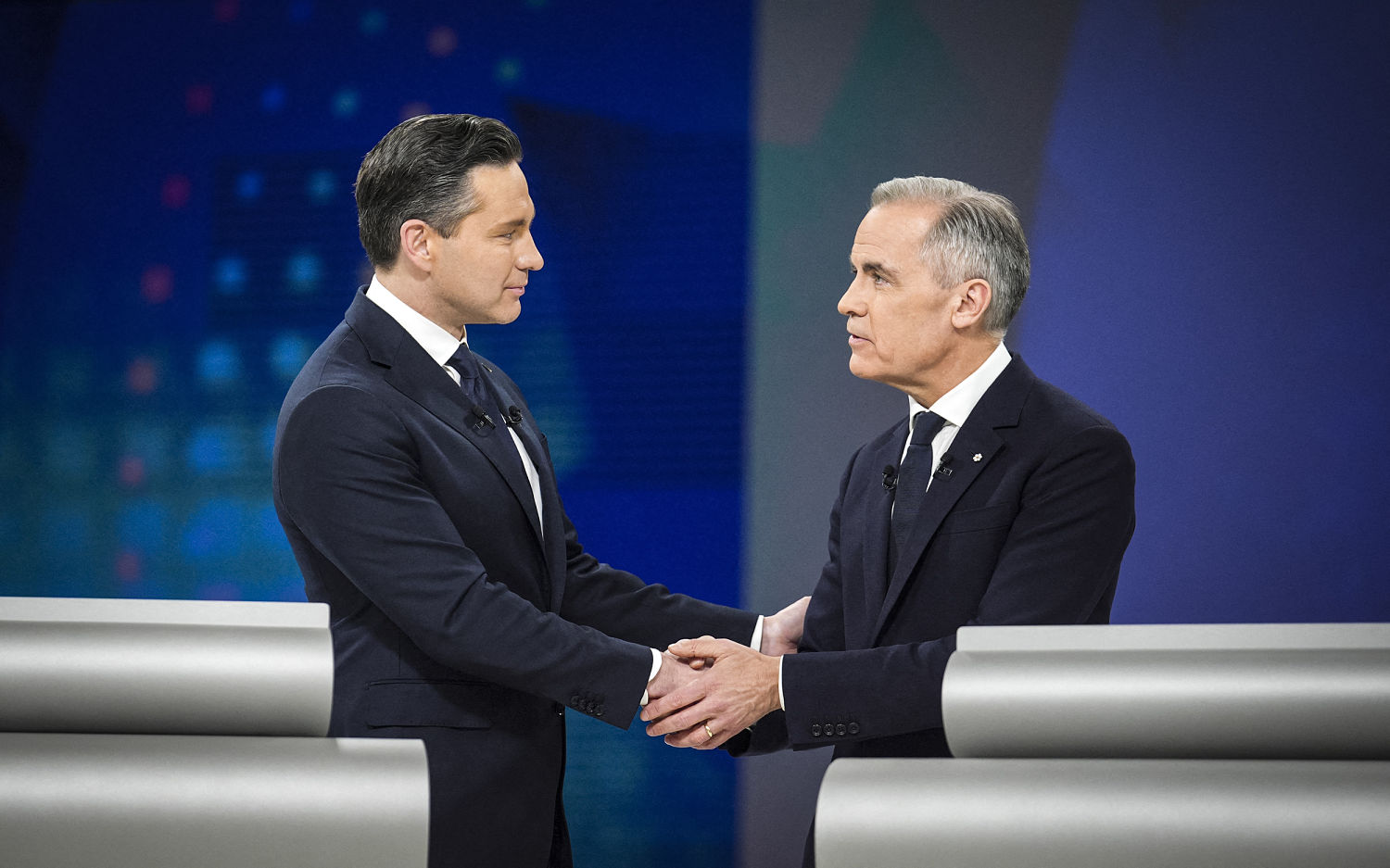
Canadian voters backed Prime Minister Mark Carney’s Liberal Party on Monday, the Canadian Broadcasting Corp. projects, in a national election strongly influenced by President Donald Trump.
The CBC said it was too early to know whether the Liberals would win enough seats to form a majority government, but it projected another term for the party, which has governed the U.S. ally for almost a decade.
Only a few months ago, they looked set to be ousted by the Conservatives amid public frustration with soaring inflation, rising immigration and Prime Minister Justin Trudeau’s approach to Trump, then the president-elect.
Trudeau announced his resignation Jan. 6, two weeks before Trump was inaugurated president in the United States, after polls showed him struggling with Canadian voters.
Trump’s influence on Canadian politics did not end there. He enraged Canadians by imposing tariffs and promoting a quixotic plan that Canada should become the 51st U.S. state.
Carney is a former central banker, having served as the governor of both the Bank of Canada and the Bank of England. He was elected prime minister by the Liberal Party in March.
On the campaign trail, he touted his experience as head of the Bank of Canada during the 2008 financial crisis.
“Mark offers the proven leadership and real plan we need to deliver change for our party and our country, and to build the strongest economy in the G7,” his campaign said.
Poilievre promised change in his campaign pitch. He ran on job opportunities and on promises that Gen Z voters would be able to afford housing. In a rally Sunday, the CBC quoted him as calling the Trudeau government “the lost Liberal decade of rising crime, chaos, drugs and disorder.”
Poilievre was part of former Prime Minister Stephen Harper’s government, which preceded Trudeau’s, and has been re-elected numerous times as a member of parliament, his party notes.
Carney has never been elected to political office, but his party has highlighted his financial experience and leadership during both the 2008 financial crisis and Brexit.
Both Carney and Poilievre rebuked Trump over his comments about a “51st state” and his statements about the Canadian election.
“They can become divided and weak,” Carney said in a video on social media Monday, speaking of the United States. “But this is Canada. And we decide what happens here.”
Poilievre wrote Monday on X: “President Trump, stay out of our election.”
“The only people who will decide the future of Canada are Canadians at the ballot box,” he wrote. “Canada will always be proud, sovereign and independent and we will NEVER be the 51st state.”
One voter said he voted Liberal because Poilievre “sounds like mini-Trump to me.” Reid Warren, of Toronto, told The Associated Press that tariffs were also a concern.
“Canadians coming together from, you know, all the shade being thrown from the States is great, but it’s definitely created some turmoil, that’s for sure,” Warren said.
Bernie Goldman in Thornhill, Ontario, told the CBC that the economy was his top concern.
“We’ve had 10 years of Liberal government and I really believe we’ve spent like drunken sailors and that’s what the cause of inflation was,” Goldman told the news organization.
Trump’s tariffs on Canadian imports prompted retaliatory measures from Ottawa. Trade tensions between the neighboring countries have yet to subside.